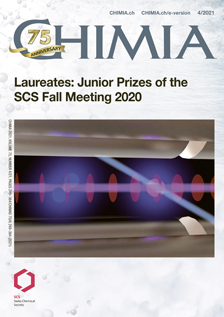Towards more Sustainable Peptide- based Antibiotics: Stable in Human Blood, Enzymatically Hydrolyzed in Wastewater?
DOI:
https://doi.org/10.2533/chimia.2021.267PMID:
33902793Keywords:
Biotransformation, Environmental benign-by-design, Peptidase specificity, Peptide-based antibiotics, WastewaterAbstract
The emergence and spread of antibiotic resistance is a major societal challenge and new antibiotics are needed to successfully fight bacterial infections. Because the release of antibiotics into wastewater and downstream environments is expected to contribute to the problem of antibiotic resistance, it would be beneficial to consider the environmental fate of antibiotics in the development of novel antibiotics. In this article, we discuss the possibility of designing peptide-based antibiotics that are stable during treatment (e.g. in human blood), but rapidly inactivated through hydrolysis by peptidases after their secretion into wastewater. In the first part, we review studies on the biotransformation of peptide-based antibiotics during biological wastewater treatment and on the specificity of dissolved extracellular peptidases derived from wastewater. In the second part, we present first results of our endeavour to identify peptide bonds that are stable in human blood plasma and susceptible to hydrolysis by the industrially produced peptidase Subtilisin A.Downloads
Published
2021-04-28
Issue
Section
Scientific Articles
License
Copyright (c) 2021 Michael T. Zumstein, Kathrin Fenner

This work is licensed under a Creative Commons Attribution 4.0 International License.
How to Cite
[1]
M. T. Zumstein, K. Fenner, Chimia 2021, 75, 267, DOI: 10.2533/chimia.2021.267.







